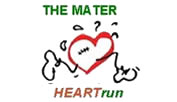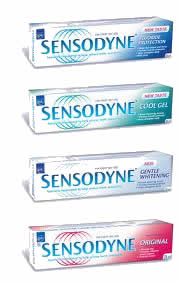MEASLES TRENDS AND VACCINE EFFECTIVENESS IN NAIROBI, KENYA
Abstract
ABSTRACT
Objectives: To determine morbidity and mortality from measles and to estimate measles
vaccine effectiveness among children hospitalised with measles in two hospitals in Nairobi.
Design: A review of hospital records (index cards).
Setting: Kenyatta National Hospital and Mbagathi District Hospitals covering the years
1996-2000.
Method: A review of index cards for measles morbility and mortality was undertaken in the
two hospitals. Measles data at the Kenya Expanded Programme on Immunisation covering
both hospitals was analysed for vaccine effectiveness.
Results: The incidence of measles was unusually high in 1998 between July and November
(monthly range 130-305), reflecting on the occurrence of an outbreak at that time. There was
no definite monthly incidence trend of measles in 1996, 1997, 1999 and 2000. The median age
of cases was 13 months (range 0-420 months) for Kenyatta hospital and 18 months (range 1-
336 months) for Mbagathi Hospital. Significantly, 29.8% of all cases were aged below nine
months when routine immunisation for measles had not begun. The median number of days
spent in hospital were five days (range 0-87 days) for Kenyatta and four days (range 1-13
days) for Mbagathi. The overall case fatality rate was 5.6% and was similar for both males
and females. The overall measles vaccine effectiveness among measles cases admitted to
Kenyatta and Mbagathi Hospitals was 84.1%.
Conclusion: The case admissions in Kenyatta and Mbagathi Hospitals suggest measles was
prevalent in Nairobi over the latter half decade of the 1990’s. Apart from 1998 when there
was an outbreak, the seasonality of measles was dampened. The 1998 outbreak suggests a
build up of susceptible children the majority of whom were born in the last quarter of 1996.
The high mortality may have had to do with the majority of cases presenting late when
symptoms were already complicated and severe.
Objectives: To determine morbidity and mortality from measles and to estimate measles
vaccine effectiveness among children hospitalised with measles in two hospitals in Nairobi.
Design: A review of hospital records (index cards).
Setting: Kenyatta National Hospital and Mbagathi District Hospitals covering the years
1996-2000.
Method: A review of index cards for measles morbility and mortality was undertaken in the
two hospitals. Measles data at the Kenya Expanded Programme on Immunisation covering
both hospitals was analysed for vaccine effectiveness.
Results: The incidence of measles was unusually high in 1998 between July and November
(monthly range 130-305), reflecting on the occurrence of an outbreak at that time. There was
no definite monthly incidence trend of measles in 1996, 1997, 1999 and 2000. The median age
of cases was 13 months (range 0-420 months) for Kenyatta hospital and 18 months (range 1-
336 months) for Mbagathi Hospital. Significantly, 29.8% of all cases were aged below nine
months when routine immunisation for measles had not begun. The median number of days
spent in hospital were five days (range 0-87 days) for Kenyatta and four days (range 1-13
days) for Mbagathi. The overall case fatality rate was 5.6% and was similar for both males
and females. The overall measles vaccine effectiveness among measles cases admitted to
Kenyatta and Mbagathi Hospitals was 84.1%.
Conclusion: The case admissions in Kenyatta and Mbagathi Hospitals suggest measles was
prevalent in Nairobi over the latter half decade of the 1990’s. Apart from 1998 when there
was an outbreak, the seasonality of measles was dampened. The 1998 outbreak suggests a
build up of susceptible children the majority of whom were born in the last quarter of 1996.
The high mortality may have had to do with the majority of cases presenting late when
symptoms were already complicated and severe.
Refbacks
- There are currently no refbacks.


